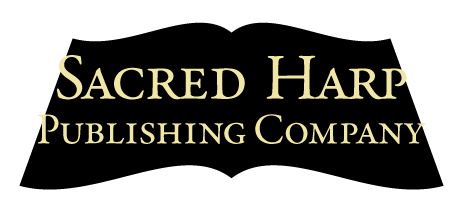In October of 2011 I organized a weekend concert tour in Germany with a group of Sacred Harp tourists from the United Kingdom. Our trip itinerary included touring a medieval city and UNESCO world heritage site, looking in at an erstwhile Cistercian abbey which is now a prison, sampling local sausage in country inns in northern Bavaria, and—last but not least—assisting at two singing schools in Würzburg and Frankfurt taught by New York City-based singing master Aldo Ceresa—a good friend of mine.

Sacred Harp singers Aldo, Ian, Jacqui, Cath, Judy, Helen, Ted, Dave, and Michael in the German Countryside. Photo by Ian West.
Sacred Harp singing schools in the land of Bach? It all started in early 2010, when Ms. Jutta Pflugmacher contacted me to inquire about the prospect of bringing shape note singing workshops to Germany. Ms. Pflugmacher, who had lived in the U.K. during the mid-1990s and had encountered shape note music there (in the context of some of the early all-day singings held in the U.K.), had been reintroduced to the music at Northern Harmony concerts in Switzerland. She believed that shape note music could be a success in the German-speaking world.
Sacred Harp singers singing "Jewett" (105) at the Maria im Weingarten church in Northern Bavaria.
Sacred Harp singing school in Würzburg, Germany.
At the Würzburg singing school we had roughly 30 attendees, including singer Harald Grundner with an entourage of singers from the local weekly Sacred Harp singing he founded in Bremen, Germany.
At the end of the Würzburg singing school, a local friend of mine and I conducted a guided tour of the town for the attendees, and we then all went for a meal together. The next morning saw the British group packing up for an early start to drive to Frankfurt for the second all-day singing school.
Germany—just as other places in continental Europe where Sacred Harp singing has gained a foothold in recent years (Poland, France)—is a country with its own rich indigenous linguistic, cultural, musical, and religious heritage. Sacred Harp singing is clearly a foreign import in these places. This distinguishes Germany and Poland from the U.K. and (arguably) Ireland, where there are natural points of connection with the British/Celtic origins of many of the tunes and with the religious poetry of the Sacred Harp.
Nevertheless, Jutta Pflugmacher may be proven right. Already in January 2012, the local group of singers in Bremen, Germany hosted roughly 30 singers (including me) from Ireland, Poland and the U.K. for a weekend of singing and fellowship at their singing space in Bremen—a World War II bunker.
Some of the German singers attended the Irish Convention in Cork in March 2012, along with many British singers. Dozens of singers from all of the European singing communities are planning to attend the U.K. Convention in September, Camp Fasola Europe (held the following week near Gdansk, Poland), as well as the Polish Sacred Harp Convention which will immediately follow the European session of Camp.
Through reciprocal travel between the various European Sacred Harp communities European singers are forming relationships while helping to support each other’s growing singings. These inter-European relationships mirror the personal and community ties created between singers in across the United States in the 1980s and 1990s when southern singers traveled out of their home regions to support new singings in distant parts of the United States and members of new singing groups began traveling to the South and to each other’s singings. It is an exciting time for Sacred Harp in Europe. Come sing with us!


I am so thrilled by this! Glad to know the land of my ancestors is learning of Sacred Harp singing! I would be curious to hear these people sing one of the songs in German but realize it may not be possible due to translation issues.
Hi BeBe,
There are shapenote tunes in German in a few oblong tunebooks, most notably the Philharmonia, published for Mennonites in the U.S. by Martin Wenger in 1875. It has hymn texts with German and English language within the same tune.
If you’re anywhere near the Ruhrgebiet, I would love to continue this conversation off-site. I am an American living in Germany trying to start a local Sacred Harp singing group.
Cordially,
Chris
Thanks for this article. It’s amazing that Sacred Harp has spread to Germany. My daddy and his family used to go to singings here in East Texas. He grew up just about six miles south of Lufkin, my home town. I have a Master’s degree in music with a vocal music concentration. I retired a few years ago from public school teaching. One subject I taught was German language and back in 1971 when I was in school I studied German art song and opera in Germany and Austria with the American Institute for Musical Studies and worked for them again the next summer. I also studied piano and organ with the late Klaus-Christhart Kratzenstein in the early 1970s. I never imagined during those trips that I might one day find the music my daddy grew up with in Germany.
Dear Chris,
Greetings from Luebeck in North Germany to the “Ruhrgebiet.” I’m glad to hear about the activities of Sacred Harp Singers in Bochum and the area.
Michael
Thanks for the article Michael!
I love Sacred Harp and gave a presentation on it while studying abroad in Leipzig this past fall/winter. I even hooked my friend on it (Franzi Schmidt), and she attended the Bremen all-day sing and the Cork convention. I’ll be back in Leipzig this summer, and this time I’d like to start up a weekly singing. Keep us in mind if you decide to come to Germany with some singers again—a singing school would definitely go over well in Leipzig.
Pingback: New Writing on Sacred Harp in Europe | Jesse Pearlman Karlsberg